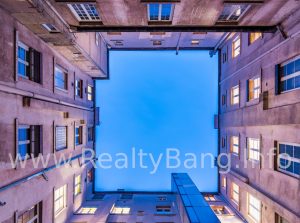Real Estate investment in Singapore is one of the preferred methods of investment for many of us. If you are planning soon, here is what you should know.
Singapore is home to both local and foreign millionaires. For several of these businessmen, spending in the Singapore estate market has proved engaging over the years.
Property investment in Singapore is so attractive that house prices have risen to the point where the government has seen fit to step up, ensuring that homes are affordable enough for citizens to live in.
Doing this with Singapore can curb the rapid return of money from property investors, it may seem that investing in property is a bad idea nowadays. However, there are more ways to earn money than buying and selling property.
Real Estate Investment in Singapore:
What is the reason for the fluctuations in the popularity of property investment?
Singapore’s property markets have been very attractive to property investors in the past. The prices of properties can rise very high, and buyers will still snap them. This created a chain effect among property investors: if people wanted to buy at higher prices, then they could sell them at higher prices as well.
Then came the problem: rising prices meant that Singaporeans could no longer find suitable accommodation for themselves without breaking the bank. Their options were either to relocate or to hope that a new investor would buy their property at a cheaper price.
To curb rising house prices in Singapore, the government developed several laws and counterclaims against property investors. Their objective was not to reduce asset prices, as doing so would give investors more growth. Rather, they wanted to stabilize and moderate the sales cycle, making it difficult for property investors to turn a profit.
How to invest in Singapore property
Property investment is one of the preferred investment methods for many Singaporeans, as you can make long-term investments without worrying about short-term fluctuations. But, with the implementation of freezing measures, purchasing property has become more costly than before.
You have to take into account the additional costs of restrictions and cooling measures. These include things like additional buyers’ stamp duty (ABSD), and total debt service ratio (TDSR). For example, citizens of Singapore who purchase a second property have to pay an ABSD of 12% and an ABSD of 15% for a third and subsequent property. Furthermore, under the TDSR framework, repayment of an individual’s loan cannot exceed 60%.
For those upgrading to HDB, you should know that there is also a grace period for ABSD. The 6-month grace period means that, if you sell the first property within six months, you can get a refund of the ABSD you made.
How to get the most from property sales
Once you are ready to sell your property, it is important to think about how much amount you can earn. One way to do this is to evaluate your property, which will take into account its age, location, and many rooms, among other things.
The facilities around your property can also affect its value.
There are many techniques to improve the value of your HDB. For example, you can decide to repaint your home, remove all clutter, or repair any leaking parts. Although they may entail a small cost, these issues, if not dealt with, can cost you a lucrative deal.
Where and in which properties should I invest?
A useful place to start the search would be to study the URA, the master plan. The genius plan will give you an idea of forthcoming improvements in different parts of Singapore.
After that, you have to consider your finances and plan for the best type of property: Most Singaporeans usually plan around BTO, EC, and Resell HDB, as they are more affordable.
How have housing prices changed over time?
Housing prices depend on many factors. From the supply side, we need to consider supply. This includes how many new flats are available and how many new developments are taking place). From the demand side, we need to consider global factors such as affordability, speculative demand, availability of mortgages, interest rates, economic growth, and epidemics. You can see how housing prices in Singapore have changed over time by looking at the housing price index.
Accepting the Private Residential Price Index, we saw that housing prices touched a peak. Property values began to fall steadily until 2017 after 7 rounds of government measures to cool the hot property market and weak economic environment. Currently, we are back to near all-time highs at the end of 2019/2020, with non-landed and landed properties that were just 0.54% and 4.81% below 2013 prices.
How to save money when buying a house
The listed price of a house does not always mean that you will buy it for that price. You should always visit the house (virtual or otherwise) and prepare a list of questions about the property. You also have to consider the neighborhood, the area around schools, shops, medical offices, and transportation options.
Also, if you feel that you will need to do extensive repairs or there will be obvious damage to the flat, then you will need to consider this as well. All these features can be used as a bargaining tool and you can reduce the price if you believe that the listing is overpriced.
When you have settled on a property, you should make sure that you get the best mortgage loan. A mortgage loan with a low interest rate can save hundreds to thousands of dollars in inter throughout your loan. To find the best rate, you should compare rates from different banks – remember, you are not obligated to give a mortgage loan first.




